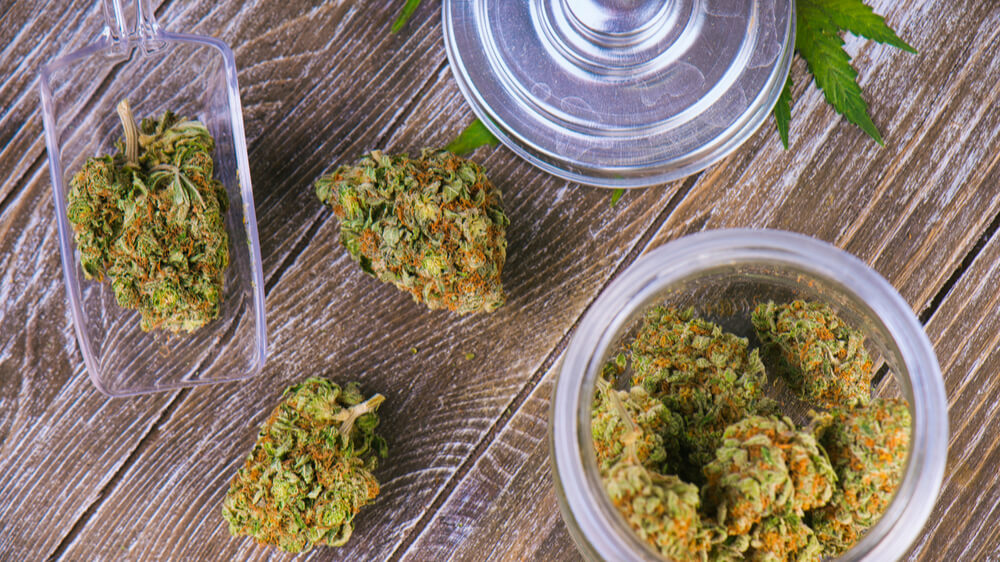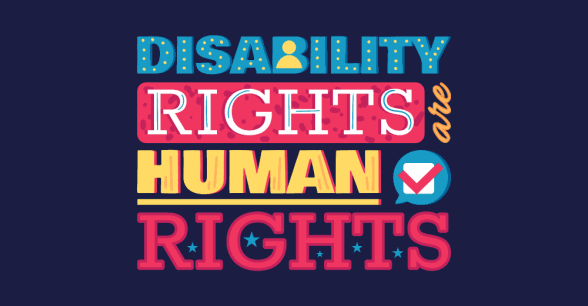“Tell Me What It Feels Like” – A Disabled Woman’s Exploration of Cannabis
Editor’s Note: The views expressed in this commentary are solely those of the author. This article is not intended as medical advice or an endorsement of cannabis use. Please consult your doctor before any cannabis use.
There were a few items left on my bucket list, and they weren’t that extraordinary. Items on my list included staying up all night with friends to watch the sunrise, catching a t-shirt out of a t-shirt cannon, maybe kissing someone or two, and trying…weed?
“Ok, so, Lils, what does getting high feel like?”
Lilly had smoked, from what I gathered, numerous times before. She mentioned sophomore year, when she had first started as my PCA (personal care assistant) that cannabis had a completely different effect than alcohol. Three and a half years of college had flown by, and graduation was two months away. It was now or never, I thought to myself.
Growing up, my parents had given my sister and I a sip or two of wine with dinner, starting in our young teens; by the time I got to college, alcohol had been demystified. I wasn’t a fan of being drunk, or even tipsy, as it made my muscles stiffen, and I would get almost an instant headache and feel thoroughly dehydrated. Frat parties and binge drinking were never my scene.
I think in part I wanted to try weed because I wanted to feel rebellious. Sticking it to the man has always been a favorite activity of mine, and I felt like by using this one drug, I would be pushing back enough to scratch the itch. I wasn’t interested in trying other drugs, and cigarettes repulsed me; I didn’t even think I would like it, but I wanted to try anyways. There were stipulations though; I wanted a private, safe and friendly environment, somewhere we wouldn’t be interrupted. If I didn’t like it, I didn’t want peer pressure affecting my choice. There had to be snacks. We did it on a Friday, so there was no worry of making class or work in the morning.
We mapped it out: Lilly helped carry me into her bohemian bedroom, String lights, mandala tapestry and all, deep in the basement of her on-campus housing. We sat on her bed, me leaning over a pillow, her splayed out behind me, and she pulled out a joint. I hadn’t really smelled anything till that point, but when she pulled it out the smell dropped around me like pine, fresh earth, and strangely, cheese.
“No tobacco?” I confirmed, looking at the rolled paper in her hand.
“No tobacco.”
She lit the joint, took a drag to start it, and tapped the ashes into a ring holder she kept on her bedside table. String lights hung from the ceiling, smoke drifting lazily past. The smell surrounded me. A forest.
She passed it to me, and I inhaled, coughing immediately. My eyes watered and I took a drink to clear my throat. But two more puffs later I had it down, coughing but comfortable as we snuggled. Slowly and then quickly, like a wave coming to the shore to cleanse you, I felt the muscles in my shoulders slowly stop spasming. The bolt of tight muscles in my neck loosened – oxygen and THC flowed to my brain, and for the first time in a long time, I felt no pain. My body felt like it had gotten a full massage, neutral and comfortable with fewer anxious thoughts. I felt alive.
“Is this what able-bodied people feel like all the time?”
Lilly laughed dazedly. “I’m not sure I can answer that, I’m not you. But I don’t feel high all the time as an able-bodied person, if that helps.”
Lilly and I spent the evening laughing and reminiscing on her bed, smoking the joint and eating a full bag of pretzels. She talked about how she wanted to move to Prague after school, and I talked about being anywhere but Maine. Late that evening, or rather, early the next morning, she walked me home, and I thought then as I do now that these are the moments I will remember as shaping the social aspect of my college experience; friends who support you trying new things, and are there for you as you explore the great wide world.
Two years later, in 2018, I applied for my Medical Marijuana Card. I hadn’t smoked in the interim, but more and more information had come out about cannabis, and dispensaries were legalized in D.C. Now, I’m proud to say I know most people who work in my dispensary by name, and I’ve started advocating for the reduction of stigmas surrounding the drug.
As a cannabis connoisseur and advocate, I support exploring the ways in which cannabis may positively affect your life, as well as educating yourself on the strides we need to take as a country to ensure decriminalization, legalization, and creating a path for convicted marijuana users to re-enter and rebuild society.
I honestly think that weed has altered my life for the better. As someone with high medication tolerance and numerous disabilities, cannabis is the drug – the medicine – that has allowed me to become more present in my day-to-day living, more active, and less drowsy as I’ve reduced my cocktail of other drugs.
I continue to rebel against the stigma of a “lazy disabled person who smokes marijuana.” I would encourage others to push past the stigma, because this tool could start a new beginning in your life. (See editor’s note above.) Stigma and peer pressure should not dictate how we take care of our bodies and ourselves. Cannabis makes me a more productive, energetic and flexible individual, as well as reduces my seizures, and I’m proud to be an advocate for a drug that, while it needs more research, has the continued potential to revolutionize the Disability Community, the U.S., and hopefully, the world.
For more information, please tune in to hear me speaking about cannabis on the Accessible Stall Podcast.
For general information about basic cannabis properties, new research and ideas, please check out Leafly’s Cannabis 101.
About Rooted In Rights
Rooted in Rights exists to amplify the perspectives of the disability community. Blog posts and storyteller videos that we publish and content we re-share on social media do not necessarily reflect the opinions or values of Rooted in Rights nor indicate an endorsement of a program or service by Rooted in Rights. We respect and aim to reflect the diversity of opinions and experiences of the disability community. Rooted in Rights seeks to highlight discussions, not direct them. Learn more about Rooted In Rights



